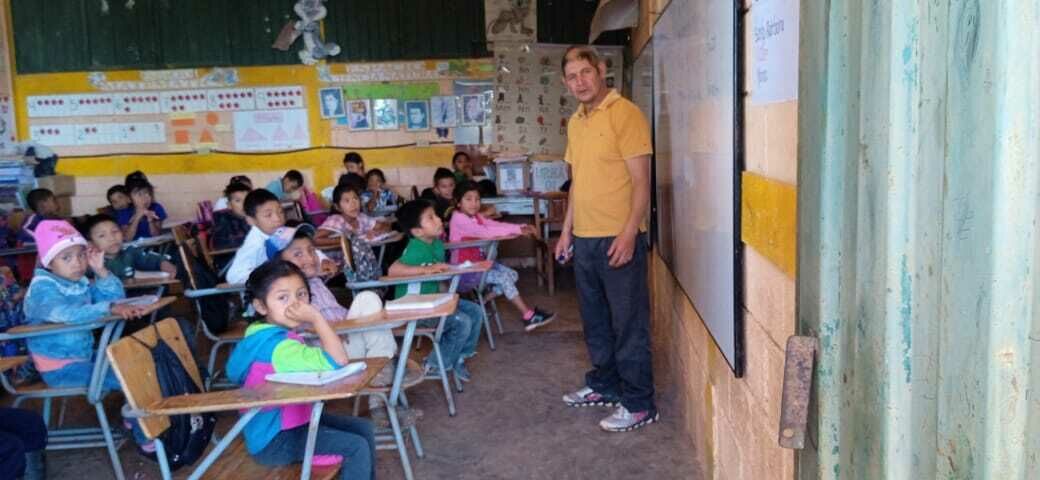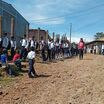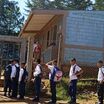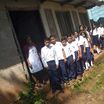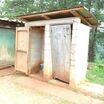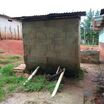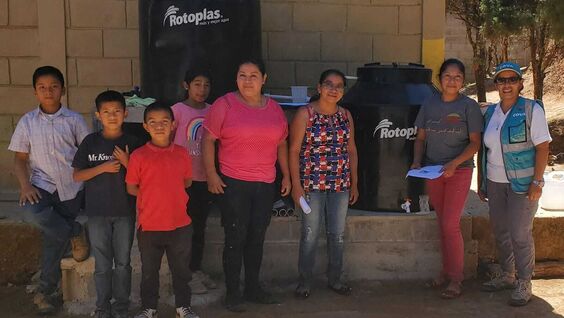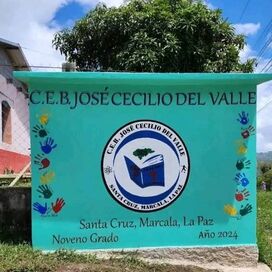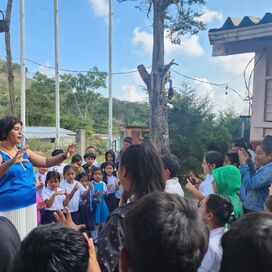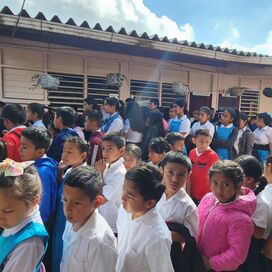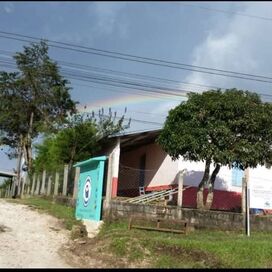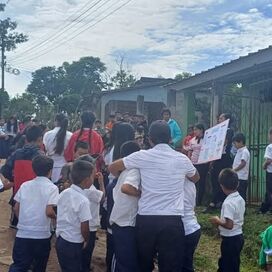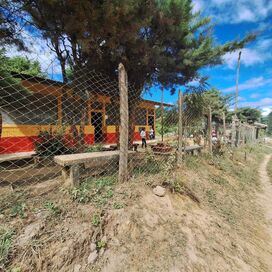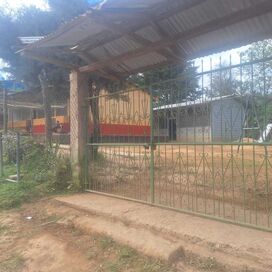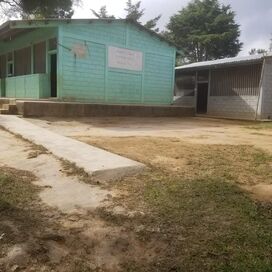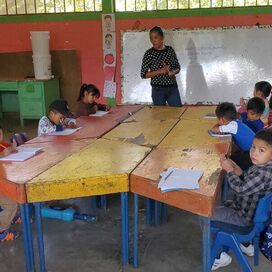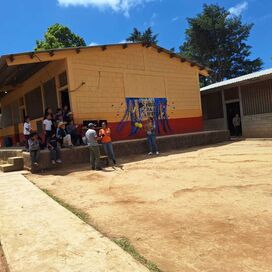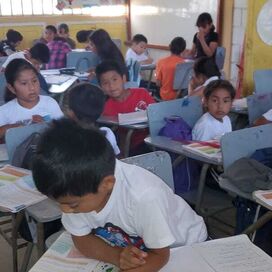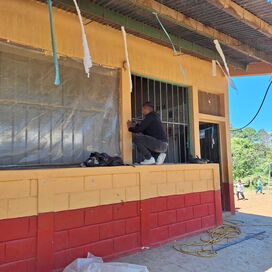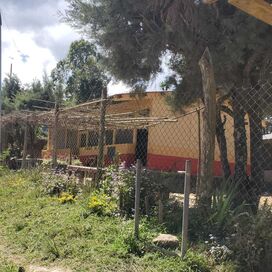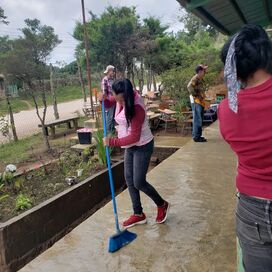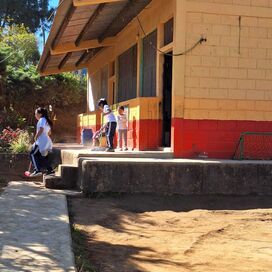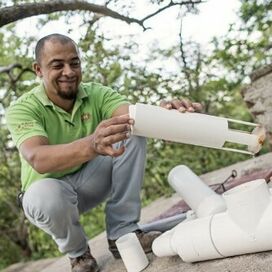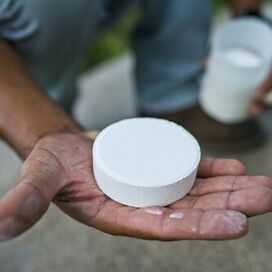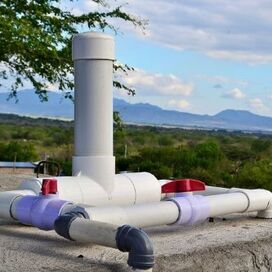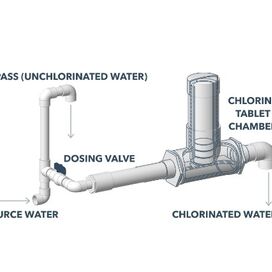La Paz Water Purification for 3 Schools
Project Complete!
The school is located in a community where the water comes from an open source, making it vulnerable to waterborne diseases. Due to the community's remote location and relative size, the community water system does not guarantee sufficient water during the school day. A combined system on site would ensure students have water during the school day and that the water is safe.
José Cecilio del Valle School is located in the rural municipality of Marcala. The school provides education needs for kindergarten through 9th grade to 143 students. Students have significant absences from school due to waterborne illnesses. Providing access to safe drinking water within the school system, students will be healthier, less absences due to illness, and be provided with a better education.
José Cecilio del Valle is located in Santa Cruz, a community which already has a chlorinator connected to its water system. However, during the rainy season, frequent heavy rainfall significantly increases turbidity levels in the water, which compromises the effectiveness of chlorine treatment. As a result, both community members and students are left vulnerable to waterborne illnesses due to the presence of harmful bacteria. Installing a ‘Sistema Combinado’ at the school will ensure consistent access to safe, treated drinking water for students, providing a critical safeguard for their health during school hours.
Marilu Urquiola Aguilar School is located in the rural community of Las Crucitas in the municipality of Marcala. The school provides education needs for kindergarten through 6th grade to 65 students. Students have significant absences from school due to waterborne illnesses. Providing access to safe water within the school system, students will be healthier, experience fewer absences due to illness, and be provided with a better education.
The community of Las Crucitas relies on a water system that sources its supply from the nearby community of El Cerrón. However, this system lacks consistent (chlorine) treatment, leading to bacterial contamination throughout the distribution network, including at the school in Las Crucitas. Water quality tests have confirmed the presence of harmful bacteria, posing a significant health risk to residents. Additionally, water flow all the way to the school is unreliable, and when it does reach the school, it is often devoid of chlorine, rendering it unsafe for consumption. As a result, children at the school frequently resort to alternative, non-potable water sources, increasing their vulnerability to waterborne illnesses.
Following the installation, the program manager, Oneida Lara, will prepare a curriculum for the students on proper water sanitation and hygiene. She will continue visiting the schools monthly and work with the teachers to educate the students on safe WASH (Water, Sanitation, and Hygiene Education) practices. COVA also has a water quality lab in their office in Marcala and will do testing of the water after the systems are installed to ensure the water is safe to drink. The COVA program has a 10-year track record of providing these solutions and ongoing monitoring to schools and communities in Central America.
H2O for Life partners with experienced NGO organizations around the world that build and support clean water, sanitation, and hygiene education projects in schools. These NGO partners cover half the total cost of every project funded through H2O for Life.
When students raise money for a project, 90% of the funds go directly to the project, and 10% supports the work that makes the project possible. This includes choosing trusted partners, managing funds responsibly, checking on projects, and reporting back so students can see the impact of their work.
This helps ensure every project is done well, stays sustainable, and truly changes lives.
In rare situations, we reserve the right to reallocate funds to alternate project(s).
Questions? Ask us at 651-756-7577 or info@h2oforlifeschools.org.
Installation of Combined Water Systems for 3 Schools in La Paz
Location: Los Planes, Marcala, La Paz, Honduras
Benefitted Population: 61 students & 2 teachers
Project Review
Our implementing partner, Cova, will install a water treatment system—known as the Sistema Combinado (Combined...
